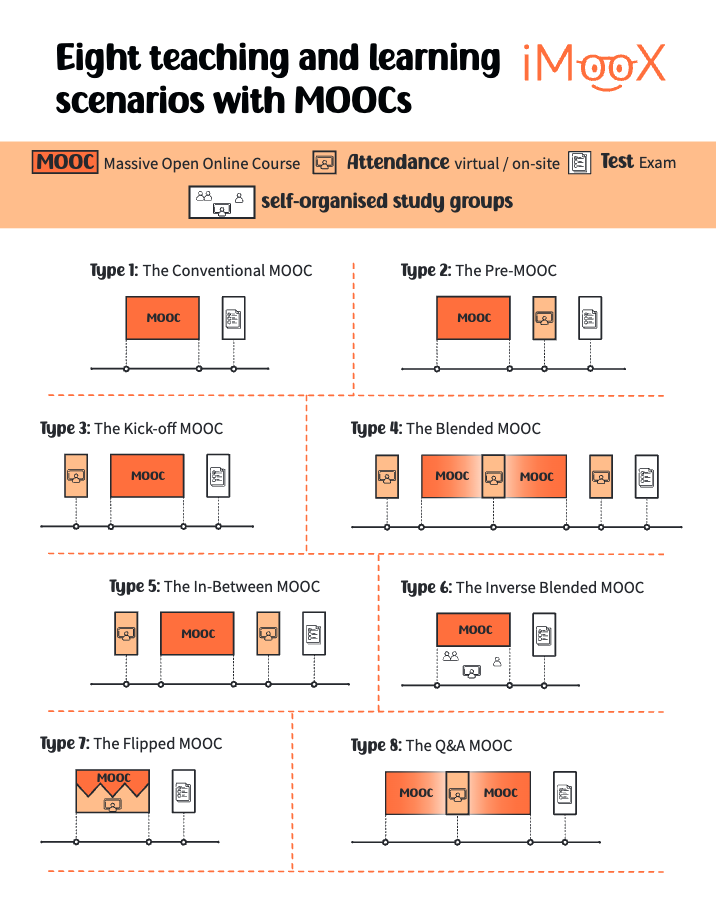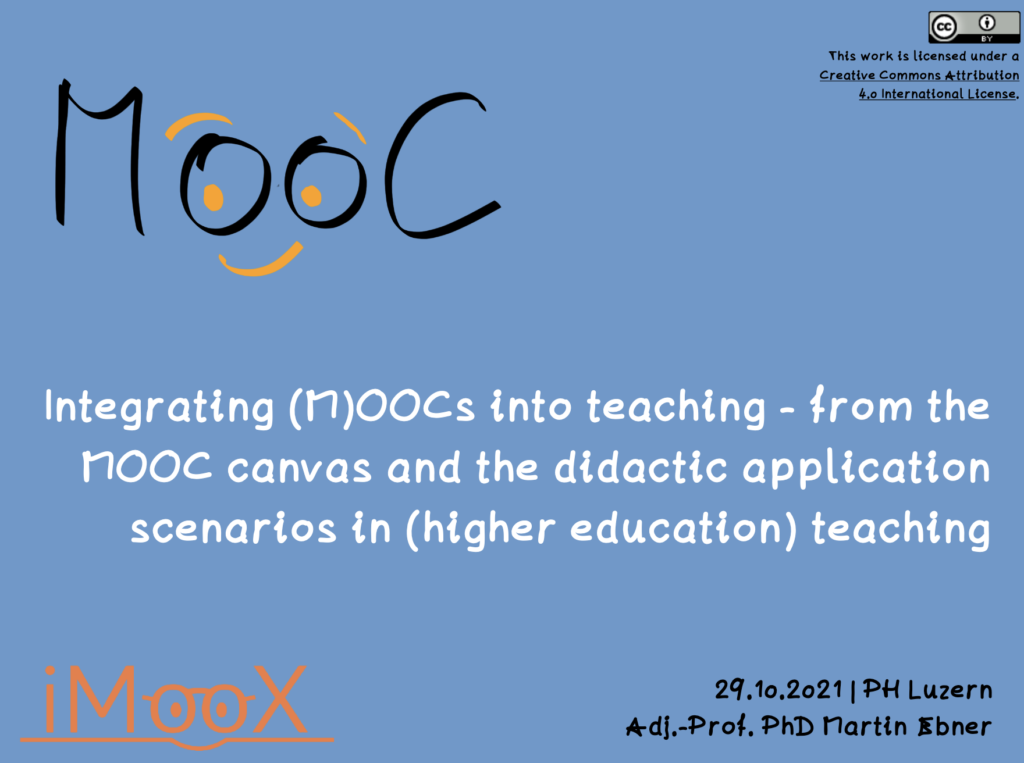Our contribution to the book „Emerging Technologies and Pedagogies in the Curriculum“ got published right now. Following the title „More Than a MOOC—Seven Learning and Teaching Scenarios to Use MOOCs in Higher Education and Beyond“ we described different scenarios how MOOCs can be used in (Higher) Education. Furthermore, we also did a short summary of the outcome, which you can find here.
Abstract:
Since 2010, Massive Open Online Courses (MOOCs) have been one of the most discussed and researched topics in the area of educational technology. Due to their open nature such courses attract thousands of learners worldwide and more and more higher education institutions begin to produce their own MOOCs. Even the (international) press is full of reports and articles of how MOOCs can revolutionize education. In this chapter, we will take a look from a meta-level. After years of experiences with different MOOCs, we recognize that many MOOCs are used in different ways by teachers, lecturers, trainers and learners. So, there are different learning and teaching scenarios in the background often not visible to the broader public. Therefore, we like to address the following research question: “How can MOOCs be used in Higher Education learning and teaching scenarios and beyond?” In the study, the authors will focus on the seven identified scenarios how particular MOOCs were used for teaching and learning and therefore illustrate, that a MOOC can be “more than a MOOC”. MOOCs are one of the key drivers for open education using Open Educational Resources. The use of open licenses for MOOC resources are the mechanism for potential innovations in learning and teachings scenarios.
Abstract of the publication
[article @ publisher’s homepage]
[draft @ ResearchGate]
Reference: Ebner M., Schön S., Braun C. (2020) More Than a MOOC—Seven Learning and Teaching Scenarios to Use MOOCs in Higher Education and Beyond. In: Yu S., Ally M., Tsinakos A. (eds) Emerging Technologies and Pedagogies in the Curriculum. Bridging Human and Machine: Future Education with Intelligence. pp. 75-87 Springer, Singapore


